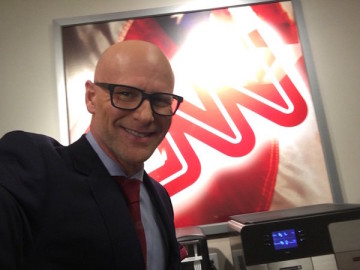I’ve spent a lot of time on CNN recently discussing Bill Cosby, and the swirling mess of civil litigation and criminal prosecution he finds himself dealing with (and thank you for the hospitality, @BriKeilarCNN!). One of the issues that keeps coming up is Cosby’s celebrity, and how this will be a factor in his case(s).
There’s no question that celebrity status has worked in favor of some people in the past (I’m thinking about you, O.J. Simpson, until the “real killer” is discovered on a Florida golf course). But “celebrity justice” has also operated to make punishments harsher for those in the public eye than for Joe Citizen. Does everyone remember Paris Hilton’s early release from jail, which is what happened to everyone, followed by her going back to jail for several weeks ONLY because the world was watching, and made the justice system look bad? (Those kinds of early releases are status quo, and being forced back into custody following early release has probably happened only one time in recorded history.)
What’s especially troubling for Cosby is that the very core of the case against him is the abuse of his status as a celebrity. This will allow prosecutors (and civil lawyers) to argue that jurors should not be swayed by his celebrity, and in fact, shouldn’t let him get away with it again by winning in court!
Of course, the other real challenge for celebrities on trial is the 24 hour a day news cycle that is legitimately interested in all of the Cosby litigation. This non-stop coverage – again, perfectly legitimate – means that the cases and unique facts of each case will become blurred, and not contained in neat evidentiary “silos” in the Court of Public Opinion. This will certainly favor prosecutors and plaintiffs, who benefit from the overarching view of “Cosby is a horrible person” that tends to come from that kind of coverage. From a defense perspective, a “stew” of evidence is a bad thing; instead, the defense wants to separate the “stew” into peas, carrots, and whatever else individually, holding each up to analysis and scrutiny. That doesn’t happen in a stew.
What I find most fascinating about all of this is that crime, as a topic, has never been hotter. With such binge-worthy programming as Netflix’s Making of a Murderer, HBO’s The Jinx, and of course, all the great programming on Investigation Discovery (like Deadly Sins!), there has never been a greater interest in the workings of the justice system. What makes these shows fascinating is that the fine parsing of evidence reveals what Paul Harvey used to call “the rest of the story”… that things may look one way, but actually be another. Anyone listening to the parade of disconnects on Serial, or the motivations to fabricate in the Stephen Avery case surfaced by producers on Making a Murderer, has to at least pause to wonder “Did the system get it right?”
Perhaps I’m the only one, but I was so inspired by the depth of analysis on shows like these, that it struck me that what “Celebrity Justice” means is the chance to level the playing field, to ensure that lady justice really is blind, by hiring the best legal team and experts available. That way, the evidence will be thoroughly evaluated, just like on Serial, Making a Murderer, or Investigation Discovery.
The tragedy in all of this is that this kind of scrutiny shouldn’t be labeled “Celebrity Justice”… it should just be called “justice”… this is the level of insight that should be brought to bear on every case in the criminal justice system! What makes me sad, and I offer as Exhibit A all of the exonerations where provably innocent people have been freed from years of custody (including death row!), is NOT that there is something called “Celebrity Justice,” but what passes for “normal folk justice” is so often injustice after all.
- #JourneyAcrossAmerica Update - May 10, 2017
- CNN Interview for my #RunAcrossAmerica - April 21, 2017
- #WhatsMyWin Training and Interview for my #RunAcrossAmerica - April 21, 2017




 Darren is an accomplished TV personality, attorney, interventionist, keynote speaker, and 'misbehavior expert' who appears constantly on countless TV and radio shows.
Darren is an accomplished TV personality, attorney, interventionist, keynote speaker, and 'misbehavior expert' who appears constantly on countless TV and radio shows.